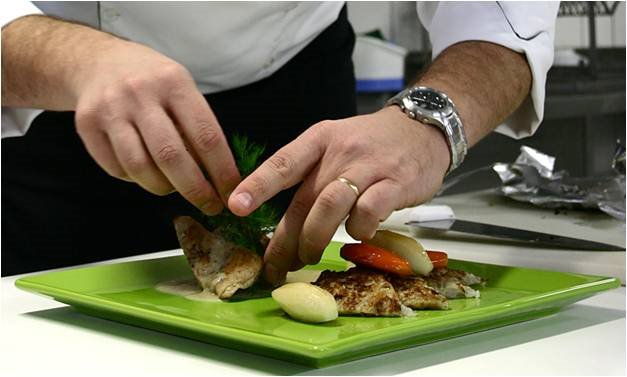Deciding to open a mobile food business is rarely an overnight inspiration. For some food truck owners it has been on their mind for years. For others it is something that developed over a short period of time.
Once you have decided to open your rolling business you have a lot of hoops to jump through, no matter how you got started. A common question we receive is on the topic of food handling permits; something to our surprise, some culinary entrepreneurs don’t even know exists. This article is intended to answer those questions.
Who Needs Food Handling Permits?
Almost all states require that at least one person in a food truck business (where there is unwrapped foods or food preparation) is required to have a food handling permit. It is also referred to as a license, certificate, card, or credentials. This permit shows the municipality and their inspectors, that the holder has had training in basic practices that prevent the spread of food borne illnesses.
The requirements vary in each municipality and may differ from state to local requirements regulations. Always follow the stricter of the two rules when dealing with different requirements. You can find out what you will need by calling the city health department of the city you operate in then double back and check with your state.
Remember that ignorance of the law doesn’t excuse you from following these requirements.
Does Everyone Need One?
Some states want each person that handles food to have the certificate. At the same time, other states require that only one person have it. They assume that they provide training for the other employees. As the owner of a mobile food business it is a good idea for both you and any managers you employee to have them even if it’s not required by your state. This will ensure that your food truck staff is trained in safe food handling techniques.
How Do You Get One?
Food handling permits are given after you have taken an accredited, government approved course and passed the final exam. This isn’t as time consuming as it sounds; it usually only takes a day or two of class (unless you acquired it through culinary school). You can even take the course and exam online in most cases. The permit will need to be renewed regularly, this period varies from state to state.
Check local culinary schools to see if they offer classes and testing to the public. Ask questions and make sure the test is one that is accepted by your state. Generally the permits aren’t transferable to another state however the ServSafe certification from the National Restaurant Association Education Foundation is recognized by all 50 states.
What If You Get Caught Without One?
In most states you will not be given your operator’s license without proof of a staff member holding food handling permits. If you do hit the road without this certification there’s a good chance of stiff fines and an even better chance of having your food truck shut down. If you have been issued a card keep with you at all times.
Make copies of your food handling permits and keep them in your truck as well as your business office. If you are required to have a permit it’s a good idea to keep it in a visible spot inside your truck. This will make it easier when an inspector shows up…expected or not.
The Bottom Line
Educate yourself about food handling permits. This also includes all of the state and local regulations that pertain to your mobile food business and be sure you comply with all of them.
RELATED: Types Of Food Truck Licenses And Permits Required To Operate
Share your thoughts on this topic in the comment section, our food truck forum or social media. Facebook | Twitter
Disclaimer: This article is intended to be a general resource only and is not intended to be nor does it constitute legal advice.




